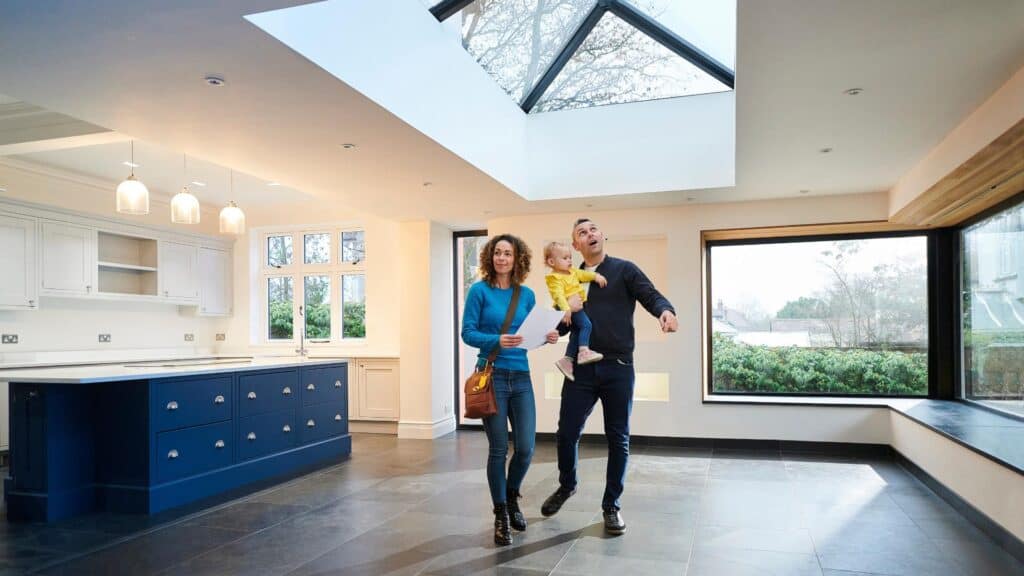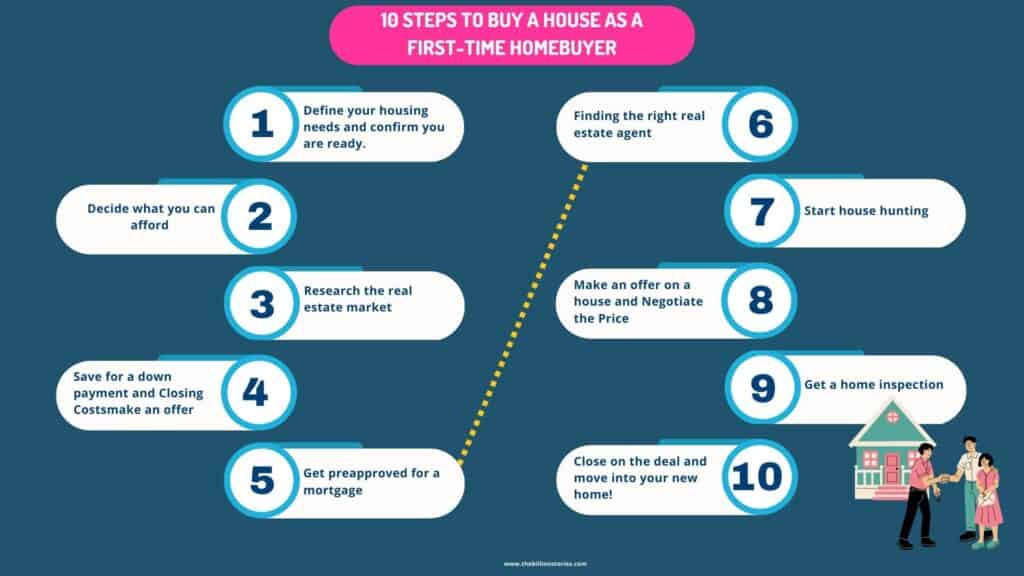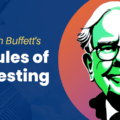Are you looking for the best way to buy a house in 2024 as first-time home buyers? Look no further! This step by step guide will show you everything you need to know to make the best decision on your dream home. Check out our YouTube video guide on how to buy a house in 2023, which is also imbedded in this blog post for your convenience!
- Current State of the Housing Market in the U.S
- The best way to buy a house in 2023
- 10 Steps to Buy a House as a first-time homebuyer
- 1. Define your housing needs and confirm you are ready.
- 2. Decide what you can afford (Define your budget)
- 3. Research the real estate market
- 4. Save for a down payment and Closing Costs
- 5. Get preapproved for a mortgage
- 6. Finding the right real estate agent
- 7. Start house hunting ( Home Search)
- 8. Make an offer on a house and Negotiate the Price
- 9. Get a home inspection
- 10. Close on the deal and move into your new home!
- How to buy a house in 2023 (Process-Recap)
- Conclusion
- FAQs
It’s no secret that buying a home is always one of the supreme dreams of most people. And according to a recent study by NerdWallet, around 26 million Americans say — they plan to purchase a home in the next 12 months. But with home prices on the rise and interest rates expected to increase, how can you be sure you’re getting the best deal on your new home?
If you’re thinking of buying a house in the next few years, you might be wondering — what the best way to go about it is. In this post, we’ll go over the best way to buy a house in 2024 (step by step) — whether you’re a first-time buyer or not.
So, if you’re ready to take the plunge into homeownership – keep reading for our ultimate guide and top tips on how to buy a house in 2024!
Current State of the Housing Market in the U.S
As we all know, the housing market is a hot topic right now. Whether you’re a first-time homebuyer, a seasoned investor, —or just looking to keep up with the latest news, it’s important to stay informed about the current state of the housing market.
According to Redfin, the total number of houses that were listed for sale in the United States in October ( 2023) was 1,684,118, or 4.6% more than in the year-ago period. There are 477,145 houses newly listed for sale on the market.
After a two-year period when home values rose exponentially, prices are now at a tipping point and will likely continue to fall. Goldman Sachs economists predict that home prices will fall by between 5% and 10% from the peak hit in June, 2023. Wells Fargo predicts that median home prices in the United States will be down 5.5% year-over-year by the end of this year.
So what does this all mean for you? If you’re thinking of buying a home, now might be a good time to start looking. Prices are predicted to fall even further, so you may be able to get a great deal on your dream home. However, it’s also important to be aware of the risks involved in buying a home in a falling market. Be sure to do your research and consult with a financial advisor before making any decisions.
Here are a few tips to help you navigate the current state of the housing market:
- If you’re thinking of buying a home, now is a — good time to start doing your research.
- Prices are predicted to fall further, so it’s a good idea to — familiarize yourself with the market and — start looking at properties now.
- If you’re thinking of selling, you may want to — wait a few months to see how the market plays out.
- With prices expected to fall, you may be able to get a better price for your home if you wait until the market has stabilized a bit.
- Whatever you decide to do, make sure you — work with an experienced real estate agent who can help you navigate the current market conditions.
- If you’re looking to buy or sell a home shortly, the current state of the housing-market is something you’ll need to keep in mind.
- With prices falling and the market in a state of flux, it’s important to work with an experienced real estate agent to get the best possible outcome for your situation.
The best way to buy a house in 2023
As a first-time homebuyer, there are a few things you should – keep in mind when looking for your dream-home. Firstly, you’ll need to save up for a down payment. Depending on the type of loan you get, you may — need 10% to 20% of the purchase price as a down payment. Secondly, you’ll need to be prepared for closing costs, — which are typically 2% to 5% of the purchase price. Lastly, you’ll need to get pre-approved for a mortgage. This will give you an idea of how much you can afford to spend on your new home.
Now that you know the basics, let’s take a look at the best way ( step-by step process) to buy a house in 2023.
10 Steps to Buy a House as a first-time homebuyer
If you’re in the market for your first home, — buying a home involves a lot of processes that may seem daunting. But never fear! With a little bit of research and some careful planning – you can be a homeowner before you know it. You want to be sure that it makes sense for you to buy – and that you are aware of all the associated costs with buying a home.
This step-by-step guide to buying a home will help you navigate the process — and make the best decision for you and your family.
1. Define your housing needs and confirm you are ready.
Defining your housing needs and confirming you are ready to buy a home is the primary process of buying a home.
Defining your housing needs
Regarding finding a place to live, it’s crucial to figure out what you need and want in a home. Once you have a good idea of your must-haves, — you can start looking for a place that meets all of your criteria. It’s important to grab the time to figure out what you need before making any decisions.
Here are a few things to consider when defining your housing needs:
- Location: Do you need to be in a certain area for work or school? Do you want to be close to family or friends? Consider your lifestyle and needs when choosing a location.
- Size: How many bedrooms and bathrooms do you need? Do you want a lot of space or are you okay with a smaller place?
- Budget: How much can you afford to spend on a new home? Make sure to consider all associated costs, — such as furniture, decor, and moving expenses.
Once you have a good idea of your needs, you can start looking for homes that fit them — by confirming you are ready to buy a home in 2024.
Make sure that you are in fact ready to buy.
When you’re thinking about buying a home, it’s vital to make sure that — you’re actually ready to take on the responsibility. Owning a home is a big financial and emotional commitment, so you’ll want to be sure that you’re prepared for all of the challenges that come with it. Take a look at your finances — and your lifestyle to see if you’re really ready to buy a home. If you’re not quite there yet, don’t worry – there’s no rush. Just keep saving and working towards your goal.
Here are the 12 things you should make sure you check out before you are ready to buy a home for the first time.
- Your credit score: Your credit score is one of the most important factors lenders will consider when you apply for a mortgage. If you have a good credit score, you’ll likely qualify for a lower interest rate, which could save you thousands of dollars over the life of your loan.
- Your down payment: Most lenders require a down payment of at least 3% of the purchase price of the home. If you have a good down payment, you may be able to negotiate a lower interest rate.
- Know your closing costs: Closing-costs can add up, so you’ll want to be aware of them before you start looking at homes.
- Know your repair budget: If you’re buying an older home, you’ll want to have a repair budget in mind.
- Interest rate: This is another essential factor that will be determined by your credit score. A higher credit score will usually result in a lower interest rate.
- Your employment history: Lenders will want to see a steady employment history when you apply for a mortgage. If you have a good employment history, you’re more likely to be approved for a loan.
- Your debt-to-income ratio: Lenders will also look at your debt-to-income ratio when you apply for a mortgage. This is the amount of debt you have compared to your income. A high debt-to-income ratio could make it difficult to get approved for a loan.
- Your monthly mortgage payment: You’ll need to budget for your monthly mortgage payment, as well as property taxes and insurance. Make sure you can comfortably afford your monthly house payment before you apply for a loan.
- The type of home you want: There are many different types of homes on the market, from single-family homes to condos and townhomes. Make sure you know what type of home you want before you start shopping.
- The location of the home: The location of the home is also important to consider. You’ll want to think about things like the commute to work, the quality of the schools in the area, and the safety of the neighborhood.
- The size of the home: The size of the home you need will depend on your lifestyle and the size of your family. Make sure you consider the size of the home you need before you start shopping.
- Repairs: Once you own a home, you’ll be responsible for any repairs that need to be made. Before you buy, make sure you’re aware of any potential repairs that might need to be made so you can budget accordingly. So, the condition of the home is also important to consider.
2. Decide what you can afford (Define your budget)
Deciding how much you can afford to spend on a house can be difficult. You have to account for the mortgage, insurance, property taxes —and potential repairs and maintenance. And, if you’re not careful, it’s easy to get in over your head – and end up with a house you can’t afford.
Before you start looking for your dream- home —it’s important to sit down and define your budget. How much can you realistically afford to spend on a house? Once you have a number in mind, stick to it. It can be easy to get caught up in the excitement of finding a new home — and end up spending more than you can afford.
Mortgage insurance and private mortgage insurance (PMI) are – supplementary costs that you need to factor into your budget when buying a home. Home insurance is also something you’ll need to pay for — and it’s important to make sure you have enough coverage.
The bottom line is that you need to be aware of all the potential costs associated with buying a home –before you start looking. Once you have a realistic idea of what you can afford —you’ll be in a much better position to find a home that fits both your needs and your budget.
3. Research the real estate market
It can be tough to buy a home, especially – if you don’t know the current real estate market. That’s why it’s important to do your research before making any decisions. By understanding prices, trends, and availability, you can be sure you’re making the best decision for your needs.
Once you know what you can afford, it’s time to start researching the housing market in your area of interest.
There are a few different ways to research the housing market. You can look online for housing-market-reports. These reports can – give you an overview of the housing market in your area. Another great way to research the housing market is to — talk to people who have recently bought or sold a home. They can give you first-hand information on what the process was like and what they wish they had known before they started.
Look at the prices of similar homes in the area and see if there are any trends. Are prices rising or falling? This information can help you decide whether now is a good time to buy – or if you should wait for a better time. You should also look at availability to see how many homes are on the market. If there are more homes for sale than buyers, — it’s a buyer’s market and you may be able to get a good deal.
4. Save for a down payment and Closing Costs
When you’re ready to buy a home, saving for a down payment — and closing costs are one of the most important steps. Saving for a down payment is often the biggest obstacle for first-time home buyers.
What is a Down Payment?
A down payment is money you put towards the purchase of your home. The more money you can put down, the lower your monthly mortgage payments will be.
What are Closing Costs?
Closing costs are the fees and expenses — that are paid at the closing of a real estate transaction. The most common closing costs are – loan origination fees, appraisal fees, title insurance, and escrow fees. Closing costs can vary greatly from one transaction to another, so it’s important to ask your lender or real estate agent for an estimate of the closing costs you can expect to pay.
How Much You Should Save
No matter what your dream–home looks like, the question remains the same – how much should you save for a down payment and closing costs?
There’s no one answer to this question. The amount you’ll need to save will depend on many factors, — including the selling price of the home you’re buying, the type of mortgage you’re taking out, and the selling price of any home you’re selling to help finance your purchase.
Let’s take a closer look at each of these factors — and how they can impact how much you’ll need to save.
The selling price of the home you’re buying
This is the most obvious factor in determining how much you’ll need to save for your down payment and closing costs. The higher the selling price of the home, the more you’ll need to save.
For instance, if you’re buying a home for $200,000, you’ll need a down payment of at least $10,000. And if you’re taking out a conventional mortgage, you’ll also need to factor in closing costs, which can range from 2% to 5% of the home’s purchase price. This means you could be looking at closing-costs of up to $10,000 on a $200,000 home.
The type of mortgage you’re taking out
The type of mortgage you’re taking out can also — impact how much you’ll need to save for your down payment and closing costs.
If you’re taking out a conventional mortgage, you’ll need to put down at least 20% of the home’s purchase price as a down payment. So, if you’re buying a $200,000 home — you’ll need a down payment of at least $40,000.
However, if you’re taking out an FHA loan, you can put down as little as 3.5% of the home’s purchase- price. This indicates you could put down as little as $7,000 on a $200,000 home.
The selling price of any home you’re selling
If you’re selling a home to help finance your purchase — the selling price of that home will also impact how much you’ll need to save for your down payment and closing costs.
Let’s say you’re selling your home for $100,000. If you’re taking out a conventional mortgage, you’ll need to put 20% down on your new home – which would be $40,000. But if you’re selling your home for $100,000, you’ll only have $60,000 left after you pay off your mortgage.
Closing costs
In complement to your down payment — you’ll also need to factor in closing-costs when nailing how much you’ll need to save.
Closing costs can range from 2% to 5% of the home’s purchase price. So, if you’re buying a $200,000 home — you could be looking at closing-costs of up to $10,000.
Saving for a down payment and closing-costs can be a challenge — but it’s doable. By saving a little each month, or by selling your current home, you can come up with the money you require to buy your dream home.
5. Get preapproved for a mortgage
If you’re in the market to buy a home, — getting preapproved for a mortgage is an important step. A mortgage preapproval letter from a lender explains how much money you can borrow to purchase a home. This can give you a big advantage when you go to make an offer on a home since the seller will know that you’re a serious buyer who is approved for a home loan.
How to Select the Best Mortgage?
Regarding one of the biggest financial decisions you’ll make in your lifetime, you want to be sure you’re selecting – the best mortgage possible.
Here are a few steps to help you on your way:
- 1. Know how much you can afford to spend on a home. This includes not only the purchase price, but also any associated costs like closing costs, fees, and interest.
- 2. Consider what type of mortgage loan you want. There are fixed-rate loans and adjustable-rate loans to choose from.
- 3. Shop around and compare rates from different lenders. Be sure to also compare the fees associated with each loan.
- 4. Before you finalize anything, be sure to read over all of the loan documents cautiously. This includes the loan agreement, Truth in Lending Disclosure, and other important paperwork.
How to Get Preapproved for a Mortgage
Getting pre-approved is fairly easy. You’ll just need to provide some financial information to your lender — such as your monthly income, debts, and assets.
Follow these steps to get preapproved for a mortgage:
- Contact a mortgage lender.
- Provide the lender with your personal and financial information.
- Get a credit report.
- Review your credit score.
- Go over the loan options with your lender.
- Choose a loan and submit a loan application.
- Wait for loan approval.
- Get a loan estimate.
- Keep in mind that preapproval is not a guarantee of loan approval.
Once you’ve been pre-approved for a mortgage, you’ll need to elect the type of mortgage that’s right for you. The most common types of mortgages are conventional loans, FHA loans, VA loans, jumbo loans, and renovation loans.
Conventional loans are the most common type of mortgage. Private lenders like banks and credit unions offer them. These kinds of loans typically require a down payment of 20% of the home’s purchase price and have a fixed interest rate..
FHA loans are a good option for first-time homebuyers or those with low credit scores. They’re available through private lenders, but that insures and regulates by a government agency — the Federal Housing Administration. They require a down payment of 3.5% of the purchase price of the home and have a lower interest rate than conventional loans.
VA loans are available to veterans, active-duty military personnel, and reservists. They require no down payment and have a lower interest rate than conventional loans. The Department of Veterans Affairs (VA) partially backs or guarantees VA loans and are generally issued by private lenders.
Jumbo loans are those in which the loan amount surpasses the loan-servicing limits set by government-backed mortgage companies. These restrictions vary by geography, but in 2018, they ranged from $647,200 for a single-family house in all states (excluding Hawaii and Alaska) to $970,800 in select high-cost sectors. Jumbo loans typically require a down payment of 20% of the home’s purchase price and have higher interest rates than conventional loans.
Renovation loans are available for homes that need repairs or improvements. This is also used to finance both the purchase of a home and the cost of renovations. Renovation loans typically have higher interest rates than conventional loans.
You’ve learned how to get pre-approved for a mortgage and which types of mortgages are available. This means you’re one step closer to Owning your Dream Home.
6. Finding the right real estate agent
Work with a real estate agent who understands your needs and can help you find the right property within your budget. A good agent will be an invaluable resource throughout the home buying process.
Who is a real estate agent?
A real estate agent is a professional who helps people buy – or sell properties. They are experts in the field and know how to negotiate the best deals. They work with clients to find the right property, negotiate prices, and handle all the paperwork involved in the transaction. Real estate agents typically work for a brokerage firm, but some are self-employed.
What are the duties of a real estate agent?
The duties of a real estate agent vary depending on whether they are working with buyers or sellers. When working with buyers, agents help them find the right property, negotiate prices, — and handle all the paperwork involved in the purchase. They also provide information about the local market and advise their clients on how to make the best offer. When working with sellers, agents help them market their property and find potential buyers. They also negotiate prices — and help with all the paperwork involved in the sale.
How to find a Right real estate agent
There are many factors to contemplate when choosing an agent, and it is important to find someone who you feel comfortable with — and who you feel confident will get the job done well.
Here are a – few tips on how to find the right real estate agent for you:
1. Get referrals from friends and family.
If you know anyone who has recently bought or sold a property — ask them for recommendations on who their agent was and whether they were satisfied with the service they received.
2. Do your research.
Once you have a few names of potential agents — do some research on them. Look at their websites and read any testimonials or reviews you can find.
3. Meet with the agents.
Arrange to meet with a few of the agents you are considering —so that you can get to know them better and see if you have a good rapport. This is also a good opportunity to ask them questions about their experience and what they would do in your situation.
4. Get a feel for their marketing strategy.
When you are selling a property, you want an agent who will be able to market it efficaciously and reach the right buyers. Ask the agents you meet with about their marketing plans — and whether they have experience selling properties like yours.
5. Make your own decision.
After considering all of the factors — it is time to choose the agent you feel most comfortable with and who you believe will do the best job for you.
How Much Does a Buyers Agent Cost
The cost of a buyers agent can vary depending on their commission rate — and the services they provide. Some buyers agents may charge a higher commission rate, but offer a higher level of service, while others may charge a lower commission rate but offer a more introductory–level of service.
According to Bank Rate, a buyer’s agent typically charges a commission of 5-6% of the home’s purchase price. So, if you’re buying a $200,000 home — you can expect to pay $10,000-$12,000 in commission.
It is significant to compare the services and commission rates of different buyers agents prior to selecting one to work with.
7. Start house hunting ( Home Search)

House hunting is one of the core steps in the procedure of buying a home. It is a process where potential home buyers look at different homes — with the intention of obtaining one of them.
House hunting can be a fun and exhilarating process but it’s also important to be prepared —and do your research beforehand. Because buying a home is a prominent financial decision in a person’s life. Before you start glancing at homes – it’s a good idea to have a realistic idea of what you’re looking for in a home.
Things to Consider When Hunting House
There are a few things you need to contemplate when you are house hunting. You need to make a list of your necessities and compare them to potential houses. For instance, you need to consider the size of the house, the number of bedrooms and bathrooms, the location, and the price.
You also need to consider your lifestyle — and what kind of house would best suit your needs. If you have a family, you need to make sure the house is big enough to accommodate everyone comfortably. You also need to make sure there are enough bedrooms for everyone.
If you have a pet —you need to make sure the house is pet-friendly. You also need to take into account the commute to work and school. The location of the house is very important. You need to make sure it is in a safe neighborhood and that it is close to the things you need – like grocery stores, restaurants, and parks.
The price is also a very influential factor. You need to guarantee you can afford the mortgage and the other associated costs of owning a home. Once you have considered all of these factors, you can start to look at different homes —or with a real estate agent and compare them to your list. This will help you discover the right home by focusing on specific options.
Home Hunting Tips to buy a Home to Sell in the Future
If you’re looking to buy a property with the intention of selling it in the future for a profit — there are a few things you can do to increase the chances of the property’s value growing.
- Look for areas with strong economic growth. New businesses moving in, more jobs, and population growth are signs that this area is becoming more prosperous.
- Research the local real estate market. Look at trends in prices, days on market, and types of homes that are selling. Look for areas that have consistently seen appreciation in home values over time.
- Work with a real estate agent who knows the area and can help you identify properties with good potential for appreciation.
- Pay attention to the condition of the property. Homes that need significant repairs are often a bad investment, as the costs of repairs can eat into any potential price appreciation.
- Consider the location of the property. Properties in desirable neighborhoods are more likely to appreciate than those in less desirable areas.
- Look for properties with unique features that make them stand out from the competition. This could include a large lot size, a great view, or a convenient location.
- Be patient. Don’t expect to find the perfect property right away. It may take some time to find a property that meets all of your criteria and has good potential for appreciation.
8. Make an offer on a house and Negotiate the Price
The process of hunting for a home can be exciting; it can also be a bit nerve-wracking – especially when it comes time to make an offer on a house. It is meaningful to remember that you are not alone in this process; — your real estate agent will be with you every step of the way.
Main contents of an offer
You’ve found the perfect house. It has everything you’ve ever wanted in a home and more. But, before you make an offer — you need to be aware of the main contents of an offer on a house. Here’s a list of the most important things to include in your offer:
- Expiration date of the offer
- Purchase price
- The earnest money deposit
- Down payment amount
- Financing terms ( Loan terms, loan amount, interest rate, etc )
- Required home inspection
- Contingencies
- Warranties
- Fees associated with closing
Making An Offer
Once you find the house of your dreams, — it’s time to make an offer. The offer should be based on the home’s value, your financial situation, and the current market conditions. Your real estate agent will assist you in determining an appropriate offer price based on comparable sales in the area and other factors.
Once you’ve made an offer — you’ll need to negotiate the price with the seller. The seller may counter your offer, and you’ll need to come to an agreement on the final price.
Here are a few things to remember when making an offer on a house:
1. Know your budget.
Before you even start looking at homes, it’s necessary to know how much you can afford to spend. Once you have a firm budget in mind, you’ll be in a much better position to make a reasonable offer on a home.
2. Do your research.
It’s also important to do your homework before making an offer on a house. This means familiarizing yourself with the local housing market and getting a general idea of what similar homes in the area are selling for.
3. Have a realistic offer in mind.
When it comes time to make-an-offer, be sure to start with a realistic price that you’re comfortable with. Keep in mind that the seller will likely counter your offer, so it’s important to have some wiggle room in your initial bid.
4. Be prepared to negotiate. (Be flexible)
As mentioned above, the seller will likely counter your initial offer. Be prepared to negotiate back and forth until you reach a fair price that you’re both happy with.
5. Don’t be afraid to walk away.
If the seller isn’t budging on the price, don’t be afraid to walk away from the deal. Remember, there are other homes out there and you don’t want to overspend on your new home just to seal the deal.
With these tips in mind, you’ll be well on your way to making a successful offer on a house. Just remember to stay calm and be prepared to negotiate until you reach a fair price.
Negotiate the Price
If you want to buy a house, you’ll need to make an offer. But how do you know what offer to make? And how can you be sure you’re getting the best deal?
The answer is to negotiate.
Tips and Tricks to Negotiate an Offer
If you’re feeling anxious about negotiating the price of a home, — it’s normal to feel a little bit of trepidation about haggling over such a large purchase. However, with a few tips and tricks up your sleeve, you can rest assured that you’ll be able to successfully negotiate the price of your dream home. Here’s how to do it.
- When you’re buying a house, the first step is to make-an-offer. This is usually done through a real estate agent.
- The agent will then present your offer to the seller. If the seller accepts your offer, you’re on your way to becoming a homeowner.
- If the seller rejects your offer, they will usually counteroffer with a higher price. This is where negotiation comes in.
- You’ll need to decide whether you’re willing to pay the counteroffer price. If you are, great! If not, you’ll need to make a new offer.
- The key to a successful negotiation is to be prepared. Know what you want to pay for the house and be willing to stick to your guns.
- If you’re not sure what to offer, a good real estate agent will be able to help you. They’ll know the local market and can give you advice on what to offer.
- Once you’ve made an offer, the seller will have a certain amount of time to accept or reject it. If they don’t respond, your offer will expire.
- If the seller rejects your offer, don’t be discouraged. It’s normal for there to be some back-and-forth before a final price is agreed upon.
- The most important thing is to stay calm and be patient. With a little bit of negotiation, you’ll be able to get the best price for your new home.
9. Get a home inspection
When you’re ready to buy a home — you want to be sure that everything is in good condition before you make such a huge purchase. A home inspection can help you feel confident about the property and avoid problems later. Here’s what you need to know about getting and finishing a home inspection.
If you’re buying a home, you’ll likely get a home inspection as part of the purchase process. A home inspection is an objective appraisal of the condition of a home, typically conducted by a professional Home Inspector. During the inspection, home inspectors will take a close look at the property’s major systems and components — including the roof, foundation, plumbing, electrical, and HVAC, and it usually lasts two- to-three-hours.
The inspector will also look for any signs of pests, water damage, or other potential problems. After the inspection — you’ll receive a report detailing the findings. If any principal issues are discovered, you may be able to negotiate with the seller to have them repaired – or to have the price of the home reduced. In some cases, the seller may accept to pay for the repairs themselves.
All you need to know about getting and finishing a home inspection
When you’re buying a home — it’s important to get a professional home inspection to ensure that the property is in good condition. This can help you avoid costly repairs down the road.
Here’s what you need to know about getting and finishing a house inspection:
1. Start by doing your research. There are many different home-inspection companies out there. Take some time to read online reviews and compare pricing.
2. Choose a qualified inspector. Not all inspectors are created equal. Make sure you choose an inspector who is qualified and experienced.
3. Once you’ve chosen a company, schedule an appointment as soon as possible. The sooner you schedule your inspection, the better. This will give you more time to address any problems that are found. Home-inspections typically take a few hours to complete.
4. Be prepared to spend some money. A home inspection will typically cost between $300 and $500.
5. Be sure to be present for the inspection. This is your chance to ask questions and get a better understanding of the condition of the home.
6. After the inspection is complete, review the report with your real estate agent. They will be able to help you interpret the findings and decide what, if any, repairs need to be made.
7. Keep in mind that a house inspection is just one step in the home-buying process. You’ll also need to get a loan, negotiate the purchase price, and close on the sale.
Buying a home is a giant investment. While a home inspection is not mandatory – it is strongly recommended. In fact, many buyers will not purchase a home without one. It can be a great way to learn about the condition of a home before you buy it. Make sure you protect your investment – by getting and finishing a house inspection.
10. Close on the deal and move into your new home!
Eventually, you did it! From planning your housing needs, and house hunting to house inspection and waiting is over!
Once you’ve found the perfect home and negotiated the purchase price — it’s finally time to close on your new home and move in! This is the final step in the process of buying a new home and this can be a very exciting time.
You should get your closing documents copy to review before closing day. If you are having difficulty understanding any of the terms or conditions in the paperwork — do not be afraid to ask questions.
It is a huge investment that you will ever make, so it is extremely comforting to know what you are signing up for.
But it’s necessary to remember that there are still a few things to take care of — before you can truly relax and enjoy your new home. Here are a few of them.
Homeowners Insurance
The first thing you need to do is get homeowner’s insurance. This will protect your new home and belongings in the event of any damage (any unforeseen circumstances, such as a fire or burglary) or theft. It’s better to be safe than sorry, so make sure you’re covered! You can get quotes from different insurance companies and compare rates to find the best policy for you.
Closing Costs
Next, you need to be aware of closing costs. These are the fees charged by the lender and title company — for processing the loan and transferring the title of the property. Closing costs can range from a few hundred to a few thousand dollars — so be sure to ask your lender for an estimate of these costs.
Property Taxes
You will also need to pay property taxes on your new home. The amount you owe will depend on the value of your home and the tax rate in your area. You can typically expect to pay 1-2% of the purchase price of your home in property taxes each year.
HOA Fees
If your new home belongs to an Home Owners Association HOA, you will have to pay the association fees. These fees go towards the upkeep of common areas, such as pools and playgrounds – and can range from a few hundred to a few thousand dollars per year.
Once you have all of this information, you are ready to close on your new home by signing all of the paperwork. Once you sign the papers, — you are officially a homeowner!
Normally, the closing process can take 30 – 45 days to complete, but according to Ellie Mae Origination Insight Report, the average closing time for a home purchase was 50 days as of September 2021. So, be patient and work with your real estate agent and lender to make sure everything is done correctly.
Things to keep in mind when close on a new home and move in
Here are a few things to keep in mind as you close on your new home and get ready to move in:
1. Get your finances in order. This is the most important thing to do before you close on your new home. Make sure – you have all the necessary documents in order and that you understand the terms of your mortgage.
2. Schedule a final walk-through. Once you have the keys to your new home, schedule a time to do a final walk-through with your real estate agent. This is your chance to make sure everything is in order and that you’re happy with the home.
3. Set up utilities. Before you move in, you’ll need to set up utilities for your new home. This includes things like — electricity, gas, water, and trash service.
4. Pack your things. Once you have everything in order, it’s time to start packing for the move. Make sure you pack carefully – and label all of your boxes so you know where everything is going.
5. Move in! The day has finally arrived – it’s time to move into your new home.
The day you move into your new home is a day you’ll always remember. It’s the culmination of a long journey that started with the decision to buy a new home. Be sure to take your time and do it right. Once you’re settled in — you can start enjoying your new home and making it your own.
How to buy a house in 2023 (Process-Recap)
Buying a house is a big financial investment. But with the right planning and preparation, it can be a very rewarding experience.
Here is the buying process recap to keep in mind if you’re thinking about buying a house in 2023:
- 1. Start saving early. If you’re not already doing so, start setting aside money each month to save for your down payment. The sooner you start — the more time you’ll have to reach your savings goal.
- 2. Get your finances in order. Before you start looking for a home, — it’s important to get your finances in order. This means getting pre-approved for a mortgage and knowing how much you can afford to spend on a home.
- 3. Research the market. Once you know how much you can afford to spend, start researching the housing – market in your area of interest. This will help you understand — what type of home you can expect to get for your budget.
- 4. Find a real-estate-agent. When you’re ready to start looking for homes, — find a R.E Agent who can help you through the process. They’ll be able to provide guidance and — answer any questions you may have along the way.
- 5. Make an offer on a home. Once you’ve found the perfect home, it’s time to make an offer! Be sure to work with your real estate agent — to determine an appropriate offer price based on the current market conditions and your financial situation.
- 6. Do a home inspection; if the seller accepts your offer, you will then get a home inspection to — guarantee the house is in good condition.
- 7. After the inspection is complete, you need to take insurance for your new home to cover damage or unseen events. Sign and complete the paperwork and move into the new home!
Conclusion

No matter what your situation is — the best way to buy a house in 2024 is to be prepared. Saving for a down payment and getting pre-approved for a mortgage are the first steps you should take. Once you’ve done that, you can start shopping around for your dream home. Keep in mind your budget and be sure to factor in the closing costs when making your decision.
The process of buying a home is not an easy task — but the reward is so nice to have a nice house to call your own.
FAQs
Is buying a home always a good investment?
Buying a home is not always the best investment. It is a good investment — if you plan to live in the house for at least five years. If you plan to sell the house within five years, it is a good investment only if you have — bought the house at a time when prices were low and the market was stable.
What is the best strategy to buy a house?
There is no one “best” strategy to buy a house, as the best strategy to buy a house will vary — depending on your individual circumstances. Every person’s situation is different – and what works for one person may not work for another. That’s why it’s important to do your research — and talk to an advisor before you make any decisions.
Nevertheless, some tips that may help include: researching the market, getting pre-approved for a mortgage, working with an experienced real estate agent — and making a realistic offer. Ultimately, the best strategy for buying a house — depends on the individual and on the specific situation.
Is it cheaper to build or buy a house?
It depends on many factors including the cost of land, the cost of materials, and the cost of labor. In general, buying a house is — usually less expensive than building a house from scratch, unless you are planning to build an unusual or custom home. According to the latest data available from the National Association of Home Builders (NAHB), the median cost of building a new home in the United States in September 2023 was $470,600, while the median cost of buying an existing home was $391,000.
How to buy a house with no money and bad credit?
If you have bad credit and no money, there are a few things you can do to buy a house. First — you may want to look for a FHA mortgage. This type of loan is available to people with low to moderate credit scores. You may also want to consider a home equity loan. This loan is usually used to purchase a home.
If that didn’t work — do your research and find a bank that has a good track record of working with people with bad credit and no money. Another option is to get a government-backed loan — or find a private lender who is willing to give you a loan. Finally, you may want to consider a mortgage broker. A mortgage broker can help you find the best loan for your situation.
What are the requirements to buy a house?
Here are the basic requirements you’ll need to meet to buy a house:
- You must be at least 18 years old (Age).
- Having a steady income.
- You must be able to afford a down payment.
- Having a good credit history.
- You must be approved for a mortgage by a bank or mortgage company that is local to you.
The requirements vary depending on the type of house being purchased, but in general— being able to meet these requirements is a good way to start the home-buying process.









Leave a Reply